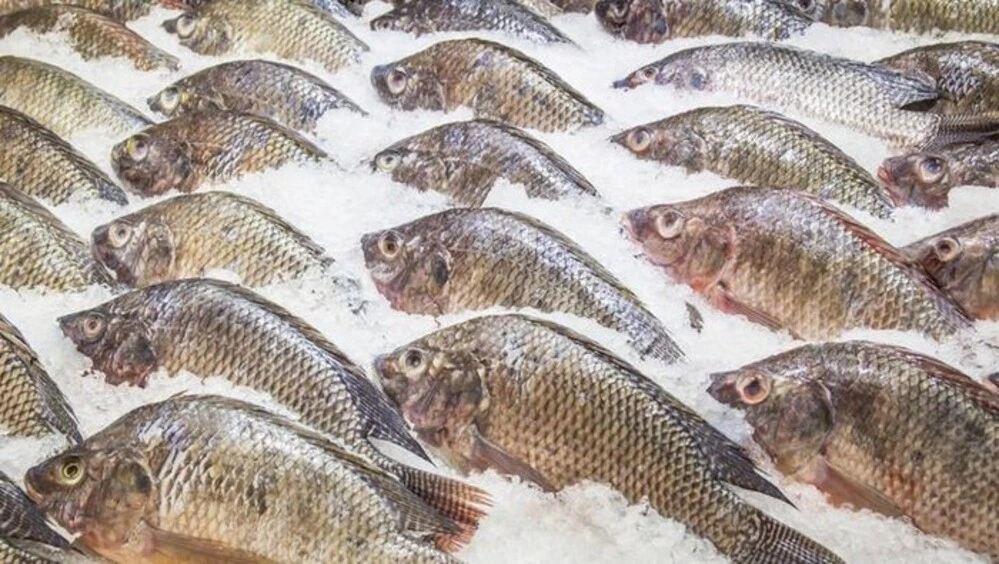Tilapia cultivation is one of the businesses that is in great demand by the community. This is certainly in line with the fact that the need for fish both for daily consumption and for maintenance is quite high.
In addition, tilapia cultivation is also relatively easy to do because this type of fish is a hardy fish. Tilapia also has a very fast growth and reproduction process.
Sobat BFI, are you interested in starting tilapia cultivation? Check out the following tips that the BFI Finance Team has compiled especially for you.
At a Glance About Tilapia
Before we get into the discussion about how to cultivate tilapia that has the opportunity to bring profit, it's good to know first about this one fish.
Tilapia is a fish that comes from the Nile and the lakes around it. Along with the development of the times, these fish finally began to spread to various countries and continents, both tropical and subtropical climates.
Tilapia belongs to omnivores or eaters with good adaptability and breeds easily.
In the wild, tilapia are able to survive by eating aquatic vegetation, plankton, and other aquatic animals. Generally, this fish is ideally located at a temperature of 25 degrees to 30 degrees Celsius and a water pH of 7-8. That way tilapia can breed optimally.
Because of its excellent adaptability, tilapia can be cultivated in various media. For example aquariums, cement ponds, tarpaulin ponds, and earthen ponds.
Another interesting fact related to this fish is that the price of the feed is cheaper than catfish or carp with a protein content of 25% in the feed.
Advantages of Tilapia Cultivation
When you want to start a new business, of course you must be wondering what are the advantages or advantages of this business idea? Below are some of the advantages that you can get from tilapia cultivation.
Myriad of Health Benefits
Tilapia has very good nutritional content for health. Among others, it contains essential omega 6 fatty acids, vitamin D, vitamin B12, and vitamin B6. These ingredients are very useful for strengthening the body's metabolism, maintaining a healthy nervous system and function.
Therefore, tilapia cultivation is very suitable for you to wrestle with. Here are other benefits of consuming tilapia, namely:
1. Safe to Consume When Dieting
Tilapia has a low fat and calorie content when compared to other freshwater fish. Even so, the protein content is still high. Therefore, consuming tilapia while undergoing a diet program is very suitable. You will stay nourished without worrying about gaining weight.
2. Good for Children's Growth
Consuming tilapia is ideal for children. The reason is, the high animal protein content in tilapia can help children grow and develop more optimally. Especially for the development of cells, organs, muscles, and membranes in growing children.
3. Prevents Premature Aging
Tilapia has a good content to maintain skin elasticity and prevent premature aging. The content is called selenium. By consuming tilapia regularly, the need for vitamin C and vitamin E in your body will be fulfilled.
How to Cultivate Tilapia for Beginners
Tilapia cultivation can be tried by anyone, including beginners. Well, so that the cultivation process can run well, let's look at some of the ways below. Make sure not to skip any of the stages so that your tilapia cultivation yields can be maximized.
1. Prepare Tilapia Cultivation Capital
It is common knowledge that capital is the spearhead in opening a business. Because this capital is one of the most crucial elements that will make it easier for you to manage the tilapia cultivation that you are involved in.
To start this one business, you can see the details of the capital calculation and the estimated profit that you can get at the bottom of this article.
2. Preparing the Fish Pond
Tilapia cultivation is quite easy, especially when we talk about fish ponds. Because, this one fish is able to adapt to live in any media.
However, there are some things that you should pay attention to regarding the preparation of tilapia fish farming ponds. Among them are:
1. The fish pond has a sufficient level of lighting, which is 20-30 cm and does not hinder the reach of sunlight
2. The location of the fish pond must be in a location that is easy to monitor at all times, and away from large trees or weeds that can interfere with lighting
3. The bottom of the fish pond is made of clay that is able to hold water
4. The water discharge in the pool ranges from 8-15 per second
5. The pool water used must be ensured that it is not cloudy or contaminated with chemicals
6. Ideally the pH of the water is 6.5 - 8.6 with a water temperature of 25 - 30 degrees Celsius
7. To facilitate the irrigation process, the slope of the soil should be 3-5 percent
3. Fish Pond Processing
Before you start releasing tilapia cultivation seeds into the pond, you must pay attention to the following steps so that the pond is really ready.
1. First, dry the bottom of the pool. You can do this by draining the water in the pool and then drying it for 3-7 days or until the pool is completely dry.
2. Next, carry out the process of plowing the land that will be used as a fish pond about 10 cm and make sure there is no remaining grass, garbage, gravel, or mud remaining at the bottom of the pond
3. The process of liming the pond, this process aims to neutralize the pH in the tilapia pond. Make sure the dose used for liming is in accordance with the acidity of the soil.
4. Fertilizing with manure, this aims to fertilize the soil as well as become additional nutrients for small animals or vegetation remaining in the pond. So, later it can be an additional food source for your tilapia cultivation.
5. The last step is watering the pool. At this last stage you can irrigate the pond with a water depth of 10 - 20 cm and then let it sit for 3 to 5 days. Only then can you fill it with water reaching a height of 60-75 cm and let the sun shine on the pool well.
4. Choosing the Right Fish Seed
Generally, there are two ways that you can use to get tilapia seeds. The first way is that tilapia seeds are obtained directly from the parent. Second, you can directly buy tilapia seeds at a fish nursery or fishery cooperative.
The characteristics of quality tilapia seeds are as follows:
1. The color of the seeds is uniform or equal to the weight of each seed around 30 grams
2. Choose tilapia seeds with a bell color with a fish length ranging from 12 cm
3. Good and healthy seeds are tilapia seeds that are agile and free from physical defects
5. Stages of Spreading Fish Seeds
The stage of spreading tilapia seeds must be done properly so that the existing seeds can live optimally. So, to do this, you can follow the steps below.
1. Provide a bucket filled with clean water approximately half of the bucket
2. Put the tilapia seeds into the existing bucket and let it rest for about 10 minutes
3. After that, fill the existing bucket with additional water slowly and let stand for 5 minutes. This process is deliberately done so that your tilapia seeds can adapt well and avoid stress
4. If you have, you can spread the existing tilapia seeds to the pond that has been prepared. Do this last step carefully.
6. Tilapia Cultivation Harvest Process
Sobat BFI need to know that tilapia is one type of fish that has a relatively long harvest period, calculated from the time of stocking fish seeds to harvesting.
This is because to get quality tilapia, the weight of the fish must range from 300 to 500 grams. And to achieve that weight it takes at least 4 to 6 months.
7. Care and Maintenance of Tilapia
To get quality tilapia cultivation yields, there are several stages of maintenance and care that you need to do.
First, to carry out your maintenance, it is recommended to feed regularly and also clean the pond as often as possible.
In feeding, generally done 2-3 times a day. Fish feed that you can use is fish feed that contains fat, protein, vitamins, carbohydrates, and minerals. In other words, make sure you use high quality fish pellets.
The use of quality pellets is done with the hope that your tilapia cultivation weight can reach 500 grams in a period of 3 to 6 months.
In addition, make sure the water level in the pool is at a depth of 75-100 cm.
8. Marketing and Promotion of Tilapia Harvest
The last step in the long-awaited tilapia cultivation is selling the harvest. You can offer tilapia that is ready to be harvested to those in need.
1. Sell Fish to Traditional Markets, Supermarkets, Fish Collectors, or Food Sellers with Fish-Based Ingredients
The first way you can do to sell tilapia cultivation crops is by selling them to collectors or brokers. Later, these collectors will distribute the fish to consumers who need it.
You can apply this if you don't want to bother looking for market share or buyers.
However, if you have connections or acquaintances who need tilapia, you can offer it to them too. Even if possible, you can do the two methods above simultaneously so that existing sales will be maximized.
2. Sell Tilapia to Restaurants
Tilapia is one of the freshwater fish commodities that are in great demand. The delicious taste makes this fish never empty of buyers.
Therefore, you can try to offer the results of tilapia cultivation to restaurants by implementing a subscription system.
So, every week you will send a certain number of fish to a subscribed restaurant and also get a sale.
The sales you get can be used to widen your business. one of them is by adding a fish pond for tilapia cultivation.
3. Selling Fish Overseas (Export)
If you have sufficient business capital and good relationships, you can try to sell tilapia cultivated fish abroad (exported).
To carry out this stage, it is better if the existing fish are processed first in order to get a more competitive selling value, besides that the existing fish will not smell or rot quickly.
4. Sell Online
To expand the reach of your business and reach more buyers, you can market tilapia cultivation online.
Whether it serves direct purchases or with a pre-order system. You can also participate in selling on online shopping platforms such as e-commerce.
Estimated Calculation of Capital and Profit
After we know what steps must be taken to start tilapia cultivation, then we will discuss the estimation of business profits, capital, and other calculations needed.
| Tilapia Cultivation Capital | ||||
| Initial capital | ||||
| No | Description | QTY | Unit Price | Total Price |
| 1. | Tilapia Seeds Size 7 cm | 1000 | Rp750 | Rp750.000 |
| 2. | Fish Feed 200 Kg | 1 | Rp10.500 | Rp2.100.000 |
| 3. | 5 Meter Tarpaulin Pool | 7 | Rp1.450.000 | Rp10.150.000 |
| 4. | Big Size Fish Scoop | 1 | Rp173.000 | Rp173.000 |
| 5. | Medium Size Bucket | 1 | Rp100.000 | Rp100.000 |
| Total | Rp13.273.000 | |||
| Daily Need | ||||
| No | Uraian | QTY | Unit Price | Total Price |
| 1. | Supplements, Water, Electricity and Other Necessities | 1 | Rp700.000 | Rp700.000 |
| 2. | Labor For 3 Months | 3 | Rp1.500.000 | Rp4.500.000 |
| Total | Rp5.200.000 | |||
| Total Cost of Initial Capital Required | Rp18.473.00 | |||
Keep in mind, the calculation above is an estimate or an estimate of the costs that need to be spent for initial capital. The estimated profit that you can get from tilapia cultivation depends on the harvest you get.
Generally, the price of tilapia per kilogram is valued at IDR 40,000 - IDR 55,000. If we assume once every 3 months you manage to harvest tilapia with a unit weight of 500 grams of fish, then the profit calculation you can get is as follows.
500 Fish X IDR 40,000 = IDR 20,000,000
Net Profit of Tilapia Cultivation for 3 Months = Turnover - Capital = Rp25,000,000 - Rp18,473,000 = Rp6,527,000
The net profit can be even greater if the weight of the fish that you have successfully harvested has an average weight of 1 Kg.
Easy Ways to Get Business Capital
How? Are you getting more and more interested in starting tilapia cultivation? Don't worry, if you are confused about getting capital, BFI Finance as one of the trusted finance companies is ready to help you.
With the guarantee of BPKB Motors, Cars, and House Certificates, we will process your business capital loan application quickly and of course with low interest rates.
You can access more information regarding loans and other attractive offers via the following link.
Disbursement of funds up to 85% of the value of the vehicle and a tenor of up to 3 years.
Loan funds with a fast process and a maximum tenor of up to 18 months.
Home Certificate Guarantee Loan
Low interest starting from 0.9% with a long tenor of up to 48 months.
Sobat BFI, that's information about tilapia cultivation. Hopefully this article can make it easier for you to start this one business. Stay optimistic and persevere in your business. Business greetings!
Get other interesting information about business ideas, lifestyle, loans on the BFI Blog. Updates every Monday-Friday!







